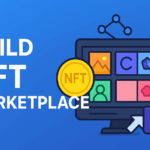In today’s rapidly changing business landscape, startups are leveraging blockchain technology to redefine how they incentivize users, investors, and contributors. Token-based incentive systems are becoming a revolutionary tool for startups, enabling them to build trust, drive engagement, and foster loyalty within their ecosystems. This trend is reshaping traditional business models and opening up exciting new possibilities for entrepreneurs.
What Are Token-Based Incentive Systems?
Token-based incentive systems utilize blockchain-based digital tokens to reward participants within a platform or network. These tokens can serve multiple purposes:
- Utility Tokens: Used within the platform for transactions, access to services, or premium features.
- Governance Tokens: Allow holders to vote on important decisions and influence the future of the platform.
- Reward Tokens: Distributed as a form of compensation for user engagement, loyalty, or contribution.
By integrating these tokens into their business models, startups can create a self-sustaining economy that benefits both users and the company.
Emerging Trends in Token-Based Incentives
1. Gamification for Engagement
Startups are incorporating gamification into their platforms by rewarding users with tokens for specific actions. For example:
- Completing tasks or challenges.
- Referring new users.
- Providing feedback or creating content.
Gamification not only enhances user engagement but also creates a sense of community among participants.
2. Staking Mechanisms
Staking allows users to lock up their tokens for a specified period in exchange for rewards. Startups are using staking as a way to incentivize long-term commitment and loyalty. This model benefits both users and companies:
- Users: Earn additional tokens for holding onto their investments.
- Startups: Gain a more stable token economy by reducing token circulation in the short term.
3. Contribution-Based Rewards
Startups are increasingly rewarding users who actively contribute to the growth of their ecosystem. Examples include:
- Developers who build apps or plugins for the platform.
- Content creators who promote the brand.
- Community members who assist with customer support or spread awareness.
This approach ensures that contributors feel valued while also strengthening the overall ecosystem.
4. Token Airdrops for Marketing
Airdrops have emerged as an effective marketing strategy for startups to attract users and generate buzz. By distributing free tokens to early adopters or potential users, startups can quickly grow their user base and incentivize engagement.
5. Token Buybacks and Burns
To maintain token value and reward holders, startups are adopting buyback and burn mechanisms. In this model:
- The startup repurchases tokens from the market, reducing supply.
- Burned tokens are permanently removed, creating scarcity and potentially increasing value.
This strategy not only stabilizes the token economy but also builds trust among investors and users.
6. Decentralized Governance Through Tokens
Startups are embracing governance tokens to give users a voice in decision-making. This trend fosters transparency and collaboration, making users feel more invested in the platform’s success.
Governance tokens allow holders to vote on:
- Future product features.
- Allocation of funds.
- Changes to the tokenomics structure.
7. Bridging the Gap Between Web2 and Web3
Startups are now focused on creating hybrid incentive systems that combine Web2 loyalty programs with Web3 blockchain technology. For example:
- Converting traditional reward points into blockchain-based tokens.
- Offering NFTs (non-fungible tokens) as rewards for loyalty milestones.
This approach helps onboard mainstream users into the crypto ecosystem seamlessly.
Real-World Success Stories
- Axie Infinity: Revolutionized gaming by enabling players to earn tokens through gameplay, creating a sustainable play-to-earn model.
- Uniswap: Incentivized liquidity providers with governance tokens, empowering them to shape the platform’s future.
- Brave Browser: Rewards users with BAT (Basic Attention Token) for viewing privacy-respecting ads.
These examples highlight how startups can use token-based incentive systems to drive growth and foster community engagement.
Challenges in Token-Based Incentive Systems
While these systems offer immense potential, startups must navigate key challenges:
- Regulatory Uncertainty: Startups must comply with evolving legal frameworks for token issuance.
- Token Value Volatility: Managing token economics to ensure long-term stability.
- Over-Tokenization: Avoiding excessive reliance on tokens to maintain a balanced business model.
By addressing these challenges, startups can create sustainable and impactful token ecosystems.
Conclusion
Token-based incentive systems are reshaping how startups attract users, reward contributions, and build loyal communities. From gamification and staking to governance and airdrops, these systems are at the forefront of innovation in the startup world.
For startups looking to implement these systems effectively, platforms like CryptoExchange4U offer expert consulting and solutions to design token economies tailored to your unique business needs. By leveraging the power of blockchain and strategic incentives, startups can position themselves as leaders in the rapidly evolving digital economy.
Explore the possibilities of token-based incentives with CryptoExchange4U, and unlock the potential to drive growth and success in 2025 and beyond.






















0 Comments